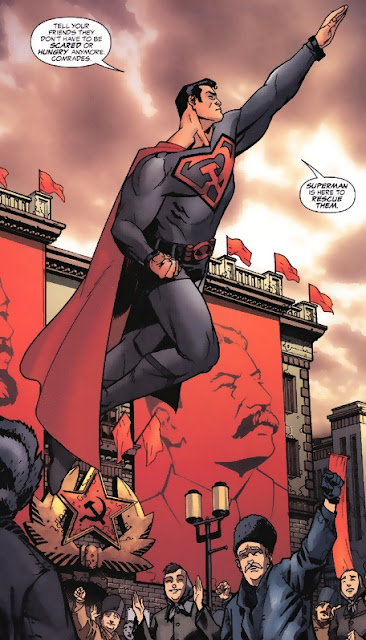Friday, October 29, 2010
Superman: Red Son
Thursday, October 28, 2010
Lex Luthor: Man of Steel
Wednesday, October 27, 2010
The Nine: Inside the Secret World of the Supreme Court
Tuesday, October 26, 2010
Dungeon Fighter Online
Monday, October 25, 2010
An Amateur Legal Perspective on Gay Marriage
Friday, October 22, 2010
Thoughts on Evolution and Religion
Thursday, October 21, 2010
Predators
Handshake-Arm-Wrestling and Cigar Stubbs:
Leading man Adrien Brody has covered a significant range in recent months; from humping alien creatures (see; Splice) to shooting them with an automatic shotgun. And his usual unassuming demeanor and quietly charming drawl have been transformed into that of a steely-eyed glass-gargling mercenary who would rather shave with a C-4 bomb than use a woman’s razor.
‘Predators’ takes us to a jungle planet where a game preserve has been established by the invisible killer aliens. They periodically import captured murderers and war veterans from around the world to pit them against intergalactic wolves and rampaging ficus plants, and to hunt down the survivors with the classic Predator arsenal; spears, lasers, knives, and fishnet body stockings.
Characters:
Not all of the humans are battle-hardened soldiers either. The predator’s only discrimination in homo-sapien homicidals is a high kill count. Freedom fighters, yakuza, mercs, gang enforcers, and thugs all grace the surface of the bloody jungle planet. Even a prison shiv artist and a serial killer make the grade, as well as a guest appearance by a schizophrenic recon soldier turned scavenger, played by Lawrence Fishburne. If a graphic novel emerges out of this installment of the franchise, as Dark Horse is wont to do, I expect to see a drunkard with an outstanding manslaughter record dropped onto the planet with a pickup truck and a case of Pabst.
The CGI graphics and scenery are outstanding, especially for a production that could have gotten away with so much less by using stock jungle scenery and effects. And the pace of the movie follows the same metronome as the first Predator. The buildup, conflicts, discovery, and final fight are so similar to the original in fact, that they reference Arnold’s epic struggle versus his own crab-face menace in a dialogue between the characters. Instead of detracting from the story this actually helps to enhance it, like holding up an old familiar blueprint and declaring loudly that you can do better.
After The Explosions:
When all is said and done and dead, Predators stands up as one of those movies that almost any guy can get behind. Things get ripped apart by miniguns, blown apart in fiery blasts, spiked, staked, and stabbed repeatedly. In my humble opinion Predators is what Predator 2 should have been, if only Hollywood hadn’t been obsessed with two things during that era of horror film; bringing terrifying monsters from the isolated wilderness to the inner city (Predator 2, Friday the 13th Part VIII: Jason Takes Manhattan) and Gary Busey.
The Pros and Cons of Merit Pay for Teachers
With this hypothetical system, the pay level of teachers would match those of other professions, reducing the brain drain where talented teachers move on to other jobs as they feel like their effort is not appreciated and does not match their pay. Bonuses would be given to those who work hard for the money, calling attention to those who need improvement. And the group of administrators would draw up a scoring system for each individual school that would affect the pay for the teachers in that particular school, avoiding the problem of a universal merit pay system. They would also put extra scrutiny upon teachers, making it so they have to earn this pay increase that they would be getting. And cooperation among teachers would continue unaffected, as these administrators would be in place to stop abuse of the system and greater pay would still be given to those who have worked the longest; a system that would be much fairer given the greater transparency.




































